Events
| Name | organizer | Where |
|---|---|---|
| MBCC “Doing Business with Mongolia seminar and Christmas Receptiom” Dec 10. 2025 London UK | MBCCI | London UK Goodman LLC |
NEWS

Zamyn-Uud free economic zone opens for regular operation www.montsame.mn
August 14, a ceremony has taken place to inaugurate the ‘Zamyn-Uud Free Economic Zone’.
During the ceremony, Deputy Prime Minister S. Amarsaikhan noted, “Although the decision to establish the free zone was initially adopted in 2004, there have not been any substantial construction works. Therefore, we are working to settle obstacles in establishing the free economic zone and intensify its activities.” He also emphasized that a bill was formulated to amend the Law on Free Zones with aims to approve related State Policy and improve legal environment. “The bill is expected to be considered and approved during the autumn session of the Parliament this year. The free economic zone is believed to serve as a bridge among Mongolia, China and Eurasia.”
Within the framework of the project on infrastructure improvement of Zamyn-Uud free economic zone, sets of works were completed on 48 hectares with the soft loan of China. These include establishment of water supply, sewerage, power plant, road and communication.
Favorable regulatory framework will enable increase in exports and imports, development of factories, creation in new sectors of trade and development and employment, boost in tourism and transit and logistics activities, bring new technologies, trade facilitation and regional development. For instance, the GDP is expected to grow by 10 percent over the years 2022-2034 and the number of jobs will increase by 9,400 by 2026, 15 thousand by 2030 and 18 thousand by 2034.
According to the master plan for the Zamyn-Uud free economic zone, 68 investors have been selected to operate activities on 101 hectares of land, of which 7 hectares are for tourism, 47 hectares for manufacturing, 20 hectares for trade and services, 25 hectares for warehousing and logistics, and 1.4 hectares for gas stations.
Present at the ceremony, there were MP and Deputy Prime Minister S. Amarsaikhan, MP and Chairperson of the Parliamentary Standing Committee on Industrialization Policy B. Choijilsuren, Chairperson of the Standing Committee on Economy J. Ganbaatar, MPs D. Sarangerel and T. Enkhtuvshin, Minister of Environment and Tourism N. Urtnasan, Minister of Energy N. Tavinbekh, Mongolia’s Ambassador to the People’s Republic of China T. Badral and Ambassador of the People’s Republic of China to Mongolia Chai Wenrui.

Crypto hacker offered reward after $600m heist www.bbc.com
A hacker who stole just over $600m (£433m) worth of cryptocurrency was offered $500,000 and immunity as a reward for returning the money.
Poly Network made the controversial offer after the hacker pledged to send back the money.
The attack was uncovered on Tuesday when Poly Network publicly pleaded with the hacker to help.
One former FBI official said "private companies have no authority to promise immunity from criminal prosecution".
The attack is one of the largest hacking heists in history. Poly Network said the person had exploited a vulnerability in its system.
Most of the money has now been given back, although the hacker says they are not interested in the reward.
Shortly after the hack the anonymous individual posted notes to the publicly available blockchain taunting the company and asking for advice on how to launder his stolen riches.
Later, the criminal claimed "not to be interested in money" and promised to return it all.
By Thursday evening, Poly Network said most of the remaining assets in the hacker's possession had been transferred to a digital wallet controlled by both the hacker and the company.
Poly Network says it is still waiting for the repayment process to be fully completed but that it is working with the hacker.
A portion of the stolen coins were frozen shortly after the attack have not yet been transferred but can't be used by the hacker anyway.
"The hacker still holds $33.4m of stolen Tether [tokens] - because it has been frozen by Tether themselves," Tom Robinson, co-founder of Elliptic, a London-based blockchain analytics and compliance firm, told the BBC.
He added that it could be seen on the blockchain that "a few thousand dollars' worth of various other tokens" were being held onto by the hacker.
It was not clear, however, if these were part of the stolen assets, or donations that the hacker requested people to send them on Thursday as a thank you for returning the money.
Other money outstanding also includes a 13.37 Ether tip ($40,000), which the hacker sent to a user who warned them that the Tether tokens had been frozen by its developer.
In a three page Q&A posted online the anonymous hacker claimed he or she carried out the heist for fun and to encourage cryptocurrency exchange firm Poly Networks to improve its security.
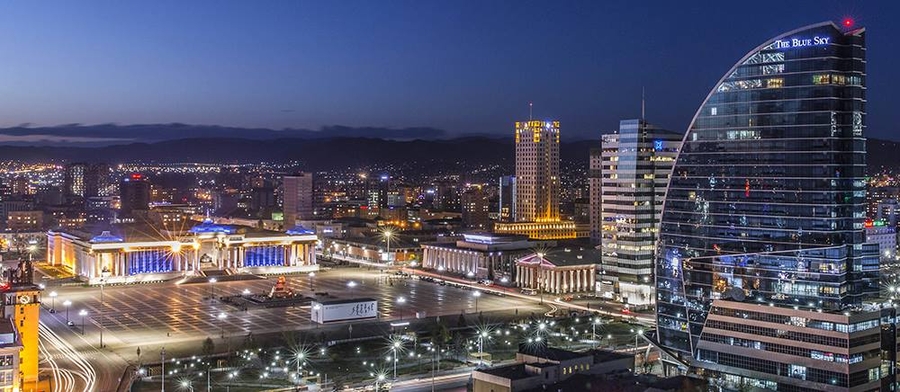
Regulations updated for issuance of Mongolian visa www.montsame.mn
The Government of Mongolia approved the updated regulations for the issuance of Mongolian visa, which will be in effect from August 16.
The updated regulations include new types of visas, bringing the total number of visa types to 64.
For instance, visas will begin to be issued for those coming to Mongolia to participate in cultural and arts events and sports competitions, to create content, to transport passengers and imported goods, to travel in the border region for a day trip, to receive medical treatment, and for transit. By specifying the types of visas, it becomes possible for foreign nationals to submit their visa applications truthfully and travel to the country for their intended purposes.
Furthermore, some changes have been made to the organizations in charge of issuing the visas. While the visa type B issued for foreign nationals visiting the country for business purposes for up to 30 days will begin to be referred as type K1 and issued by the Immigration Agency of Mongolia, the visa type J issued for those visiting the country as a tourist have been changed to type K2, and visa for stays up to 3 days will be issued to tourists near the border region by a Diplomatic Representative’s Office of Mongolia.
Moreover, the new regulations reflect the procedure for issuing electronic visas. Electronic visas for the purposes of tourism (K2), participating in cultural and arts events and sports competitions as well as creating films and content (K4), and transit (K6) have been made available as starters. Visa applications will be received through the website https://evisa.mn/main, with a decision being made from the Immigration Agency of Mongolia in up to three days. The list of countries whose nationals are eligible for electronic visas will be approved by a joint order of the Minister of Justice and Home Affairs and the Minister of Foreign Affairs.
Changes have also been made to the validity term of visas as well as the waiting period after the refusal of a visa.
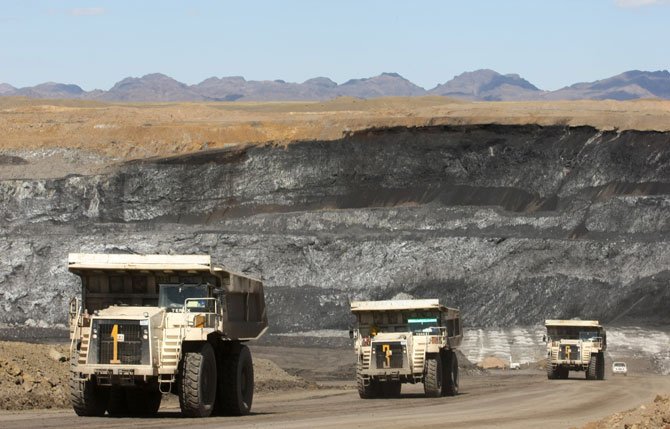
Second phase trading of ‘ETT Bond’ to be opened next week www.montsame.mn
In April this year, Erdenes Tavantolgoi JSC received a permission from the Financial Regulatory Committee to issue the dual currency ‘ETT Bond’ with a total value of up to MNT 2 trillion with a purpose to finance the implementation of major projects.
The ETT bond was intended to be offered to the public in three phases, and the first phase was successfully organized between March 30 and April 09, 2021.
In the first phase of the ‘ETT Bond’ primary market trading order, a total of MNT 677.7 billion of orders were submitted by stakeholders and fully met planned target. 970 business entities and individuals (in repeated counting) took part in the trading and placed 2,755,639 orders, which raised MNT 347.7 billion, in addition to MNT 330 billion raised under the bank refinancing agreements.
The second phase will be organized on August 16-25, with an intent to offer bonds worth MNT 285 billion and USD100 million. The issuance of this bond in US dollars prevents from the risk of depreciation and has relatively high interest rates compared to other US dollar financial products.
With the money raised in the domestic capital market, it is expected to fund the major infrastructure projects of the country, such as Tavantolgoi Thermal Power Plant, Railway, Coal Processing Plant and Water Supply Plant. Thanks to the above constructions, the company's efficiency will increase and it is expected to have a net profit of MNT 11.5 trillion until 2025.

Request put forth to accelerate import of oil refinery equipment www.montsame.mn
On August 10, Deputy Prime Minister S.Amarsaikhan held a meeting with Ambassador of the Republic of India to Mongolia M.P.Singh to discuss putting the oil refinery into operation on time.
Ambassador M.P.Singh requested the Deputy PM to implement certain measures on enhancing correlation between customs and other corresponding organizations in the framework of accelerating the work to import equipment and supplies that are necessary for the construction of the oil refinery.
Mentioning that the Government of Mongolia is implementing all possible measures in phases in order to put the oil refinery into operation, Deputy PM S.Amarsaikhan noted the difficulties being faced in the refinery’s construction such as the increase in the price of construction materials as well as delays in the shipment of goods due to the pandemic situation. Despite this, the government will pay special attention to the matter put forth by the Ambassador in order to complete the construction on time.
They also exchanged views on jointly implementing a project on the construction of a crude oil pipeline at the oil refinery.
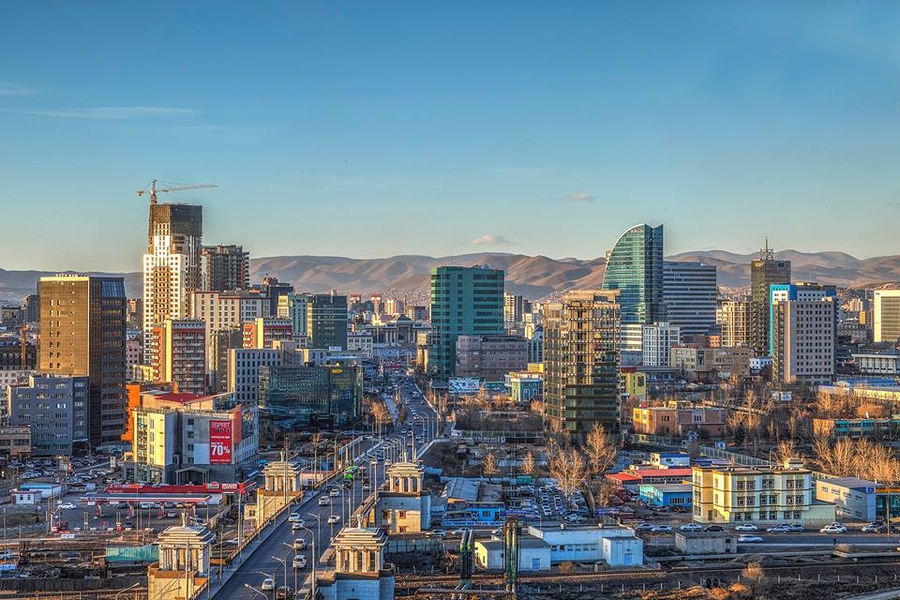
S. Korean Company expresses interest to invest in construction projects www.montsame.mn
On August 10, authorities of the State Housing Corporation held a meeting with representatives of Doosan Engineering and Construction LLC of the Republic of Korea. At the meeting, the representatives of Doosan Engineering and Construction LLC expressed their interest to invest in new projects.
State Housing Corporation is implementing ‘Eco Yarmag-1,’ ‘Solongo 1, 2’ and ‘Zaluus-1’ construction projects. On August 6, the representatives of the company were provided the detailed information on the projects. Moreover, the sides exchanged views on further cooperation and investment conditions.
Authorities of the State Housing Corporation proposed the company to invest in a housing project to be implemented in the territory of the 12th khoroo of Bayanzurkh district, and the sides decided to exchange relevant information and make related calculations.
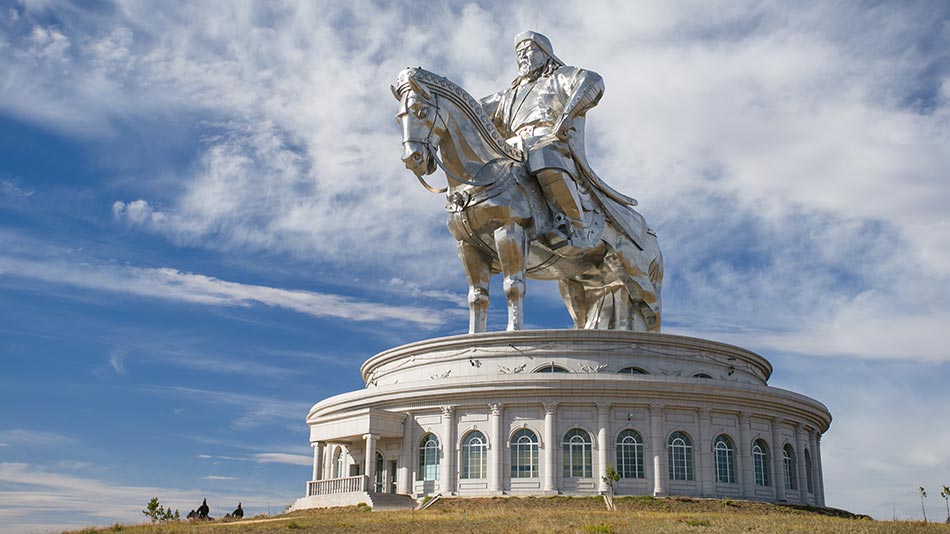
Administration in charge of construction projects in New Zuunmod and Maidar cities established www.montsame.mn
At its regular meeting today on August 11, the Cabinet made the decision to establish an administration in charge of construction projects at Khushig Valley, reports Minister of Construction and Urban Development B.Munkhbaatar.
In May 2020, the Parliament approved the Cabinet’s draft resolution for establishing the cities of ‘New Zuunmod’ and ‘Maidar’ in Khushig valley. In the framework of developing the comprehensive plans for developing the valley area, a preliminary study has found that there is enough water resources to supply 150 thousand residents. Alongside supporting the growth of transport and logistics businesses based at the new international airport in Khushig Valley as well as the Bogdkhan Railway Bypass Line that is soon to be constructed, plans have been developed with the aim of creating new job opportunities for the sectors of culture, tourism, and light industry.
According to a preliminary study of water resources, there is a living space for 150 thousand people.
The plans include construction works for infrastructure, such as three wastewater treatment facilities with a daily capacity of 20 thousand cubic meters, five reservoirs, auto road network, electricity, and a thermal power station. Following its completion, more construction works are planned for establishing residential, commercial, and industrial areas.
In connection with the new international airport being put into operation in Khushig Valley, the government has launched the works to construct the Bogdkhan Railway Bypass Line.

6 days are left till the opening ceremony of the 14th MineClosure2021 International Conference/ Come and join us! www.mongolianbusinessdatabase.com
150 distinguished guests, presenters and participants from 16 countries are participating at Mine Closure 2021.
Attendees will enjoy 35 technical presentations, discussing best practice and new techniques in the field of mine closure.
Thank you to Mine Closure 2021 sponsors and exhibitors.
Exhibitors include ATC Williams, Bloomlink, CGG, Product Profile LLC, QMC and SLR.
Sponsors include ATC Williams and Steppe Gold.
Premium Sponsor is Rio Tinto.
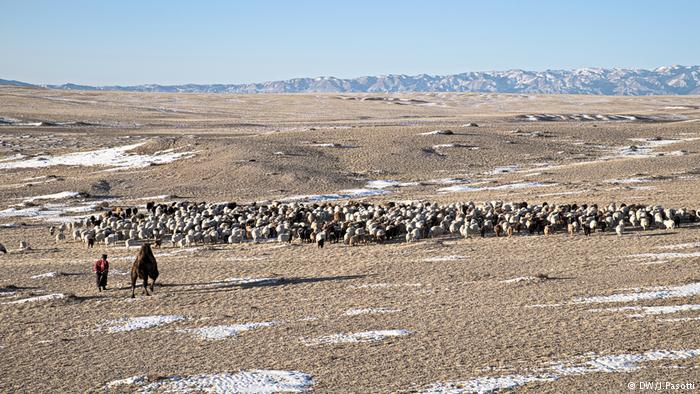
Climate Change Impacts on Health and Livelihoods: Mongolia Assessment www.reliefweb.int
Mongolia already has encountered and will continue to experience significant warming and drying as a result of the climate crisis (certain). Temperatures are rising faster than the global average (certain). This is already being felt by communities across Mongolia, challenging traditional pastoralist–herder lifestyles and catalyzing a strong rural-urban migration trend. The higher temperatures are likely to increase the frequency and severity of heatwaves and droughts, especially in the south and south-west. Seasons will become more pronounced (highly likely) and the peculiar and uniquely Mongolian phenomenon of the Dzud, which creates drought-like summer conditions followed by extremely cold, harsh winters, will become more frequent and fiercer (highly likely). Extreme rainfall will become more intense and more frequent, with more rain falling during very wet days, and this may translate into increased intense rainfall-linked extreme events such as landslides, flash floods and land erosion (highly likely). The impacts that these changes will have on livelihoods and health, without substantial global action and national adaptation, are significant.
Climate change has the potential to trigger wide-ranging and strong negative feedback loops between livelihoods and health. The impacts of rising temperatures, changes in rainfall, more winter snowfall and mounting pressures on water resources all negatively affect the traditionally important agricultural sector and especially livestock herding.
The Dzud, in particular, can cause catastrophic loss of livestock in the harsh winters, which hugely affects rural incomes and has ramifications throughout markets creating price spikes and supply gaps. The increased frequency and intensity of natural hazardrelated disasters like the Dzud, intense rainfall, heavy snowfall, dust storms and floods resulted in a doubling of the damage to livelihoods over a 20-year period (UNDP 2019). Pasture degradation has been increasing in recent years across the country following worsening droughts, higher temperatures and the drying up of water sources. With the majority of the population overwhelmingly dependent on their livestock, climate shocks have led to declining incomes due to a decrease in the weight of the animals as well as in the yields of wool and cashmere.
Climate change will impact human health directly through more extreme weather events such as the Dzud, which has been linked to reduced growth in children. It also increases the incidence of respiratory illnesses as people remain indoors burning coal – a necessary measure to ward off the extreme cold, but one that intensifies their exposure to indoor air pollution. Climate change will also indirectly impact people’s health through environmentally mediated changes, notably, the growing risk of zoonotic or tick-borne diseases. The proximity of pastoralist-herders to their livestock as they range across pasturelands, hosting natural reservoirs of serious diseases (such as Plague), highlights the importance of One Health approaches. Whilst undernutrition is not a major issue, micronutrient deficiencies are high across the whole population and especially in children. As climate change continues to catalyze rural-urban migration, urban populations increasingly consume abundant highly processed, low quality, cheap food contributing to the high burden of noncommunicable diseases (NCDs). A number of gaps were found related to the impacts of climate change on mental health, sexual and reproductive health and rights, and on water quality and supplies and how this relates to the health of pastoralist herders.
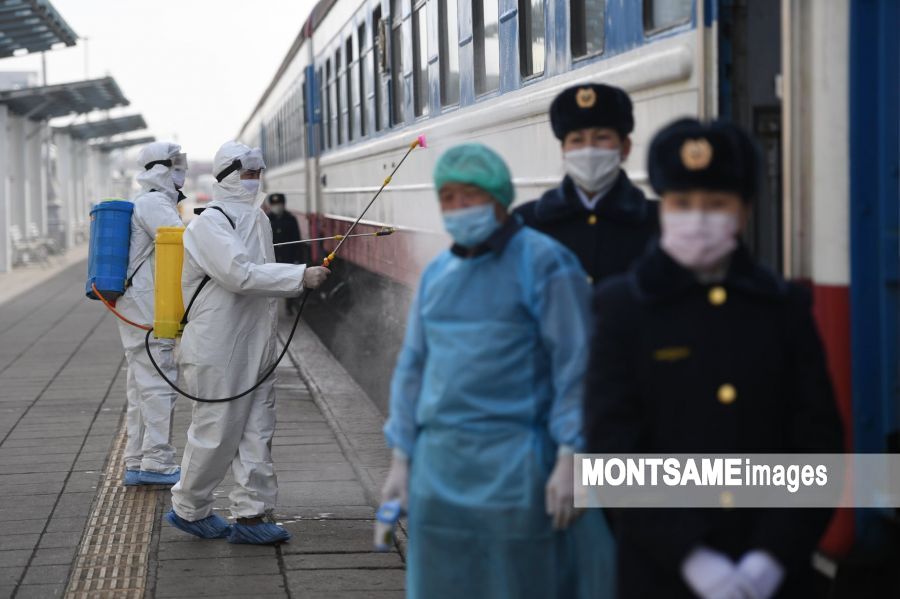
Mongolia reports 1,433 new COVID-19 cases www.xinhuanet.com
Aug. 11 (Xinhua) -- Mongolia's COVID-19 tally rose to 176,993 on Wednesday, with 1,433 new local infections registered during the past 24 hours, according to the country's health ministry.
The death toll rose to 890 as three more deaths were recorded in the last 24 hours, said the ministry.
Over 7,560 samples were tested nationwide in the past day, and the country has conducted more than 3.5 million COVID-19 tests so far, the ministry said in a statement.
The Asian country with a population of around 3.3 million reported its first imported COVID-19 case in March 2020 and confirmed its first locally transmitted case in November last year.
The disease has spread to all of its 21 provinces.
- «
- 1
- 2
- 3
- 4
- 5
- 6
- 7
- 8
- 9
- 10
- 11
- 12
- 13
- 14
- 15
- 16
- 17
- 18
- 19
- 20
- 21
- 22
- 23
- 24
- 25
- 26
- 27
- 28
- 29
- 30
- 31
- 32
- 33
- 34
- 35
- 36
- 37
- 38
- 39
- 40
- 41
- 42
- 43
- 44
- 45
- 46
- 47
- 48
- 49
- 50
- 51
- 52
- 53
- 54
- 55
- 56
- 57
- 58
- 59
- 60
- 61
- 62
- 63
- 64
- 65
- 66
- 67
- 68
- 69
- 70
- 71
- 72
- 73
- 74
- 75
- 76
- 77
- 78
- 79
- 80
- 81
- 82
- 83
- 84
- 85
- 86
- 87
- 88
- 89
- 90
- 91
- 92
- 93
- 94
- 95
- 96
- 97
- 98
- 99
- 100
- 101
- 102
- 103
- 104
- 105
- 106
- 107
- 108
- 109
- 110
- 111
- 112
- 113
- 114
- 115
- 116
- 117
- 118
- 119
- 120
- 121
- 122
- 123
- 124
- 125
- 126
- 127
- 128
- 129
- 130
- 131
- 132
- 133
- 134
- 135
- 136
- 137
- 138
- 139
- 140
- 141
- 142
- 143
- 144
- 145
- 146
- 147
- 148
- 149
- 150
- 151
- 152
- 153
- 154
- 155
- 156
- 157
- 158
- 159
- 160
- 161
- 162
- 163
- 164
- 165
- 166
- 167
- 168
- 169
- 170
- 171
- 172
- 173
- 174
- 175
- 176
- 177
- 178
- 179
- 180
- 181
- 182
- 183
- 184
- 185
- 186
- 187
- 188
- 189
- 190
- 191
- 192
- 193
- 194
- 195
- 196
- 197
- 198
- 199
- 200
- 201
- 202
- 203
- 204
- 205
- 206
- 207
- 208
- 209
- 210
- 211
- 212
- 213
- 214
- 215
- 216
- 217
- 218
- 219
- 220
- 221
- 222
- 223
- 224
- 225
- 226
- 227
- 228
- 229
- 230
- 231
- 232
- 233
- 234
- 235
- 236
- 237
- 238
- 239
- 240
- 241
- 242
- 243
- 244
- 245
- 246
- 247
- 248
- 249
- 250
- 251
- 252
- 253
- 254
- 255
- 256
- 257
- 258
- 259
- 260
- 261
- 262
- 263
- 264
- 265
- 266
- 267
- 268
- 269
- 270
- 271
- 272
- 273
- 274
- 275
- 276
- 277
- 278
- 279
- 280
- 281
- 282
- 283
- 284
- 285
- 286
- 287
- 288
- 289
- 290
- 291
- 292
- 293
- 294
- 295
- 296
- 297
- 298
- 299
- 300
- 301
- 302
- 303
- 304
- 305
- 306
- 307
- 308
- 309
- 310
- 311
- 312
- 313
- 314
- 315
- 316
- 317
- 318
- 319
- 320
- 321
- 322
- 323
- 324
- 325
- 326
- 327
- 328
- 329
- 330
- 331
- 332
- 333
- 334
- 335
- 336
- 337
- 338
- 339
- 340
- 341
- 342
- 343
- 344
- 345
- 346
- 347
- 348
- 349
- 350
- 351
- 352
- 353
- 354
- 355
- 356
- 357
- 358
- 359
- 360
- 361
- 362
- 363
- 364
- 365
- 366
- 367
- 368
- 369
- 370
- 371
- 372
- 373
- 374
- 375
- 376
- 377
- 378
- 379
- 380
- 381
- 382
- 383
- 384
- 385
- 386
- 387
- 388
- 389
- 390
- 391
- 392
- 393
- 394
- 395
- 396
- 397
- 398
- 399
- 400
- 401
- 402
- 403
- 404
- 405
- 406
- 407
- 408
- 409
- 410
- 411
- 412
- 413
- 414
- 415
- 416
- 417
- 418
- 419
- 420
- 421
- 422
- 423
- 424
- 425
- 426
- 427
- 428
- 429
- 430
- 431
- 432
- 433
- 434
- 435
- 436
- 437
- 438
- 439
- 440
- 441
- 442
- 443
- 444
- 445
- 446
- 447
- 448
- 449
- 450
- 451
- 452
- 453
- 454
- 455
- 456
- 457
- 458
- 459
- 460
- 461
- 462
- 463
- 464
- 465
- 466
- 467
- 468
- 469
- 470
- 471
- 472
- 473
- 474
- 475
- 476
- 477
- 478
- 479
- 480
- 481
- 482
- 483
- 484
- 485
- 486
- 487
- 488
- 489
- 490
- 491
- 492
- 493
- 494
- 495
- 496
- 497
- 498
- 499
- 500
- 501
- 502
- 503
- 504
- 505
- 506
- 507
- 508
- 509
- 510
- 511
- 512
- 513
- 514
- 515
- 516
- 517
- 518
- 519
- 520
- 521
- 522
- 523
- 524
- 525
- 526
- 527
- 528
- 529
- 530
- 531
- 532
- 533
- 534
- 535
- 536
- 537
- 538
- 539
- 540
- 541
- 542
- 543
- 544
- 545
- 546
- 547
- 548
- 549
- 550
- 551
- 552
- 553
- 554
- 555
- 556
- 557
- 558
- 559
- 560
- 561
- 562
- 563
- 564
- 565
- 566
- 567
- 568
- 569
- 570
- 571
- 572
- 573
- 574
- 575
- 576
- 577
- 578
- 579
- 580
- 581
- 582
- 583
- 584
- 585
- 586
- 587
- 588
- 589
- 590
- 591
- 592
- 593
- 594
- 595
- 596
- 597
- 598
- 599
- 600
- 601
- 602
- 603
- 604
- 605
- 606
- 607
- 608
- 609
- 610
- 611
- 612
- 613
- 614
- 615
- 616
- 617
- 618
- 619
- 620
- 621
- 622
- 623
- 624
- 625
- 626
- 627
- 628
- 629
- 630
- 631
- 632
- 633
- 634
- 635
- 636
- 637
- 638
- 639
- 640
- 641
- 642
- 643
- 644
- 645
- 646
- 647
- 648
- 649
- 650
- 651
- 652
- 653
- 654
- 655
- 656
- 657
- 658
- 659
- 660
- 661
- 662
- 663
- 664
- 665
- 666
- 667
- 668
- 669
- 670
- 671
- 672
- 673
- 674
- 675
- 676
- 677
- 678
- 679
- 680
- 681
- 682
- 683
- 684
- 685
- 686
- 687
- 688
- 689
- 690
- 691
- 692
- 693
- 694
- 695
- 696
- 697
- 698
- 699
- 700
- 701
- 702
- 703
- 704
- 705
- 706
- 707
- 708
- 709
- 710
- 711
- 712
- 713
- 714
- 715
- 716
- 717
- 718
- 719
- 720
- 721
- 722
- 723
- 724
- 725
- 726
- 727
- 728
- 729
- 730
- 731
- 732
- 733
- 734
- 735
- 736
- 737
- 738
- 739
- 740
- 741
- 742
- 743
- 744
- 745
- 746
- 747
- 748
- 749
- 750
- 751
- 752
- 753
- 754
- 755
- 756
- 757
- 758
- 759
- 760
- 761
- 762
- 763
- 764
- 765
- 766
- 767
- 768
- 769
- 770
- 771
- 772
- 773
- 774
- 775
- 776
- 777
- 778
- 779
- 780
- 781
- 782
- 783
- 784
- 785
- 786
- 787
- 788
- 789
- 790
- 791
- 792
- 793
- 794
- 795
- 796
- 797
- 798
- 799
- 800
- 801
- 802
- 803
- 804
- 805
- 806
- 807
- 808
- 809
- 810
- 811
- 812
- 813
- 814
- 815
- 816
- 817
- 818
- 819
- 820
- 821
- 822
- 823
- 824
- 825
- 826
- 827
- 828
- 829
- 830
- 831
- 832
- 833
- 834
- 835
- 836
- 837
- 838
- 839
- 840
- 841
- 842
- 843
- 844
- 845
- 846
- 847
- 848
- 849
- 850
- 851
- 852
- 853
- 854
- 855
- 856
- 857
- 858
- 859
- 860
- 861
- 862
- 863
- 864
- 865
- 866
- 867
- 868
- 869
- 870
- 871
- 872
- 873
- 874
- 875
- 876
- 877
- 878
- 879
- 880
- 881
- 882
- 883
- 884
- 885
- 886
- 887
- 888
- 889
- 890
- 891
- 892
- 893
- 894
- 895
- 896
- 897
- 898
- 899
- 900
- 901
- 902
- 903
- 904
- 905
- 906
- 907
- 908
- 909
- 910
- 911
- 912
- 913
- 914
- 915
- 916
- 917
- 918
- 919
- 920
- 921
- 922
- 923
- 924
- 925
- 926
- 927
- 928
- 929
- 930
- 931
- 932
- 933
- 934
- 935
- 936
- 937
- 938
- 939
- 940
- 941
- 942
- 943
- 944
- 945
- 946
- 947
- 948
- 949
- 950
- 951
- 952
- 953
- 954
- 955
- 956
- 957
- 958
- 959
- 960
- 961
- 962
- 963
- 964
- 965
- 966
- 967
- 968
- 969
- 970
- 971
- 972
- 973
- 974
- 975
- 976
- 977
- 978
- 979
- 980
- 981
- 982
- 983
- 984
- 985
- 986
- 987
- 988
- 989
- 990
- 991
- 992
- 993
- 994
- 995
- 996
- 997
- 998
- 999
- 1000
- 1001
- 1002
- 1003
- 1004
- 1005
- 1006
- 1007
- 1008
- 1009
- 1010
- 1011
- 1012
- 1013
- 1014
- 1015
- 1016
- 1017
- 1018
- 1019
- 1020
- 1021
- 1022
- 1023
- 1024
- 1025
- 1026
- 1027
- 1028
- 1029
- 1030
- 1031
- 1032
- 1033
- 1034
- 1035
- 1036
- 1037
- 1038
- 1039
- 1040
- 1041
- 1042
- 1043
- 1044
- 1045
- 1046
- 1047
- 1048
- 1049
- 1050
- 1051
- 1052
- 1053
- 1054
- 1055
- 1056
- 1057
- 1058
- 1059
- 1060
- 1061
- 1062
- 1063
- 1064
- 1065
- 1066
- 1067
- 1068
- 1069
- 1070
- 1071
- 1072
- 1073
- 1074
- 1075
- 1076
- 1077
- 1078
- 1079
- 1080
- 1081
- 1082
- 1083
- 1084
- 1085
- 1086
- 1087
- 1088
- 1089
- 1090
- 1091
- 1092
- 1093
- 1094
- 1095
- 1096
- 1097
- 1098
- 1099
- 1100
- 1101
- 1102
- 1103
- 1104
- 1105
- 1106
- 1107
- 1108
- 1109
- 1110
- 1111
- 1112
- 1113
- 1114
- 1115
- 1116
- 1117
- 1118
- 1119
- 1120
- 1121
- 1122
- 1123
- 1124
- 1125
- 1126
- 1127
- 1128
- 1129
- 1130
- 1131
- 1132
- 1133
- 1134
- 1135
- 1136
- 1137
- 1138
- 1139
- 1140
- 1141
- 1142
- 1143
- 1144
- 1145
- 1146
- 1147
- 1148
- 1149
- 1150
- 1151
- 1152
- 1153
- 1154
- 1155
- 1156
- 1157
- 1158
- 1159
- 1160
- 1161
- 1162
- 1163
- 1164
- 1165
- 1166
- 1167
- 1168
- 1169
- 1170
- 1171
- 1172
- 1173
- 1174
- 1175
- 1176
- 1177
- 1178
- 1179
- 1180
- 1181
- 1182
- 1183
- 1184
- 1185
- 1186
- 1187
- 1188
- 1189
- 1190
- 1191
- 1192
- 1193
- 1194
- 1195
- 1196
- 1197
- 1198
- 1199
- 1200
- 1201
- 1202
- 1203
- 1204
- 1205
- 1206
- 1207
- 1208
- 1209
- 1210
- 1211
- 1212
- 1213
- 1214
- 1215
- 1216
- 1217
- 1218
- 1219
- 1220
- 1221
- 1222
- 1223
- 1224
- 1225
- 1226
- 1227
- 1228
- 1229
- 1230
- 1231
- 1232
- 1233
- 1234
- 1235
- 1236
- 1237
- 1238
- 1239
- 1240
- 1241
- 1242
- 1243
- 1244
- 1245
- 1246
- 1247
- 1248
- 1249
- 1250
- 1251
- 1252
- 1253
- 1254
- 1255
- 1256
- 1257
- 1258
- 1259
- 1260
- 1261
- 1262
- 1263
- 1264
- 1265
- 1266
- 1267
- 1268
- 1269
- 1270
- 1271
- 1272
- 1273
- 1274
- 1275
- 1276
- 1277
- 1278
- 1279
- 1280
- 1281
- 1282
- 1283
- 1284
- 1285
- 1286
- 1287
- 1288
- 1289
- 1290
- 1291
- 1292
- 1293
- 1294
- 1295
- 1296
- 1297
- 1298
- 1299
- 1300
- 1301
- 1302
- 1303
- 1304
- 1305
- 1306
- 1307
- 1308
- 1309
- 1310
- 1311
- 1312
- 1313
- 1314
- 1315
- 1316
- 1317
- 1318
- 1319
- 1320
- 1321
- 1322
- 1323
- 1324
- 1325
- 1326
- 1327
- 1328
- 1329
- 1330
- 1331
- 1332
- 1333
- 1334
- 1335
- 1336
- 1337
- 1338
- 1339
- 1340
- 1341
- 1342
- 1343
- 1344
- 1345
- 1346
- 1347
- 1348
- 1349
- 1350
- 1351
- 1352
- 1353
- 1354
- 1355
- 1356
- 1357
- 1358
- 1359
- 1360
- 1361
- 1362
- 1363
- 1364
- 1365
- 1366
- 1367
- 1368
- 1369
- 1370
- 1371
- 1372
- 1373
- 1374
- 1375
- 1376
- 1377
- 1378
- 1379
- 1380
- 1381
- 1382
- 1383
- 1384
- 1385
- 1386
- 1387
- 1388
- 1389
- 1390
- 1391
- 1392
- 1393
- 1394
- 1395
- 1396
- 1397
- 1398
- 1399
- 1400
- 1401
- 1402
- 1403
- 1404
- 1405
- 1406
- 1407
- 1408
- 1409
- 1410
- 1411
- 1412
- 1413
- 1414
- 1415
- 1416
- 1417
- 1418
- 1419
- 1420
- 1421
- 1422
- 1423
- 1424
- 1425
- 1426
- 1427
- 1428
- 1429
- 1430
- 1431
- 1432
- 1433
- 1434
- 1435
- 1436
- 1437
- 1438
- 1439
- 1440
- 1441
- 1442
- 1443
- 1444
- 1445
- 1446
- 1447
- 1448
- 1449
- 1450
- 1451
- 1452
- 1453
- 1454
- 1455
- 1456
- 1457
- 1458
- 1459
- 1460
- 1461
- 1462
- 1463
- 1464
- 1465
- 1466
- 1467
- 1468
- 1469
- 1470
- 1471
- 1472
- 1473
- 1474
- 1475
- 1476
- 1477
- 1478
- 1479
- 1480
- 1481
- 1482
- 1483
- 1484
- 1485
- 1486
- 1487
- 1488
- 1489
- 1490
- 1491
- 1492
- 1493
- 1494
- 1495
- 1496
- 1497
- 1498
- 1499
- 1500
- 1501
- 1502
- 1503
- 1504
- 1505
- 1506
- 1507
- 1508
- 1509
- 1510
- 1511
- 1512
- 1513
- 1514
- 1515
- 1516
- 1517
- 1518
- 1519
- 1520
- 1521
- 1522
- 1523
- 1524
- 1525
- 1526
- 1527
- 1528
- 1529
- 1530
- 1531
- 1532
- 1533
- 1534
- 1535
- 1536
- 1537
- 1538
- 1539
- 1540
- 1541
- 1542
- 1543
- 1544
- 1545
- 1546
- 1547
- 1548
- 1549
- 1550
- 1551
- 1552
- 1553
- 1554
- 1555
- 1556
- 1557
- 1558
- 1559
- 1560
- 1561
- 1562
- 1563
- 1564
- 1565
- 1566
- 1567
- 1568
- 1569
- 1570
- 1571
- 1572
- 1573
- 1574
- 1575
- 1576
- 1577
- 1578
- 1579
- 1580
- 1581
- 1582
- 1583
- 1584
- 1585
- 1586
- 1587
- 1588
- 1589
- 1590
- 1591
- 1592
- 1593
- 1594
- 1595
- 1596
- 1597
- 1598
- 1599
- 1600
- 1601
- 1602
- 1603
- 1604
- 1605
- 1606
- 1607
- 1608
- 1609
- 1610
- 1611
- 1612
- 1613
- 1614
- 1615
- 1616
- 1617
- 1618
- 1619
- 1620
- 1621
- 1622
- 1623
- 1624
- 1625
- 1626
- 1627
- 1628
- 1629
- 1630
- 1631
- 1632
- 1633
- 1634
- 1635
- 1636
- 1637
- 1638
- 1639
- 1640
- 1641
- 1642
- 1643
- 1644
- 1645
- 1646
- 1647
- 1648
- 1649
- 1650
- 1651
- 1652
- 1653
- 1654
- 1655
- 1656
- 1657
- 1658
- 1659
- 1660
- 1661
- 1662
- 1663
- 1664
- 1665
- 1666
- 1667
- 1668
- 1669
- 1670
- 1671
- 1672
- 1673
- 1674
- 1675
- 1676
- 1677
- 1678
- 1679
- 1680
- 1681
- 1682
- 1683
- 1684
- 1685
- 1686
- 1687
- 1688
- 1689
- 1690
- 1691
- 1692
- 1693
- 1694
- 1695
- 1696
- 1697
- 1698
- 1699
- 1700
- 1701
- 1702
- 1703
- 1704
- 1705
- 1706
- 1707
- 1708
- 1709
- 1710
- 1711
- 1712
- 1713
- 1714
- »






